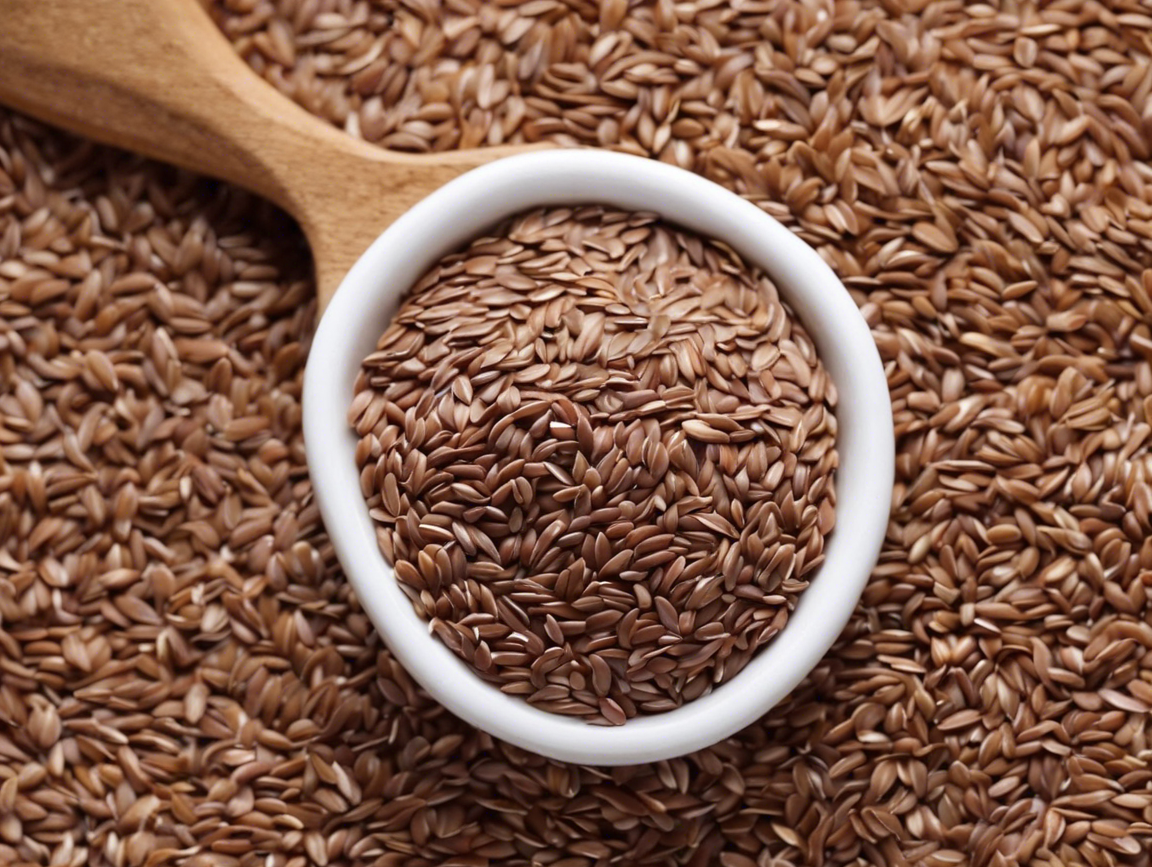Flaxseed, commonly known as Alsi in Hindi, is a versatile and nutrient-rich seed that has gained popularity for its numerous health benefits. Flaxseed has been a part of human diets for thousands of years and is considered a superfood due to its high content of essential nutrients like omega-3 fatty acids, fiber, and lignans. In this article, we will delve into the Hindi meaning of flaxseed and explore its various health benefits, culinary uses, and potential side effects.
Flaxseed in Hindi: What is Alsi?
In Hindi, flaxseed is known as Alsi. It is derived from the plant Linum usitatissimum, which is cultivated for its seeds and fibers. Alsi has a rich history in Indian culture and traditional medicine systems like Ayurveda and is valued for its health properties.
Nutritional Profile of Alsi (Flaxseed)
Alsi is a powerhouse of essential nutrients, making it a valuable addition to a balanced diet. Here is a breakdown of the key nutrients found in flaxseed:
-
Omega-3 Fatty Acids: Flaxseed is one of the best plant sources of alpha-linolenic acid (ALA), a type of omega-3 fatty acid crucial for heart health and brain function.
-
Dietary Fiber: The high fiber content of flaxseed promotes digestive health, regulates blood sugar levels, and aids in weight management.
-
Lignans: Flaxseed is rich in lignans, which are plant compounds with antioxidant properties and potential cancer-fighting effects.
-
Protein: Flaxseed is a good source of plant-based protein, making it an excellent addition to vegetarian and vegan diets.
Health Benefits of Alsi (Flaxseed)
1. Heart Health
The omega-3 fatty acids in flaxseed help lower cholesterol levels, reduce inflammation, and support overall cardiovascular health. Consuming flaxseed regularly may decrease the risk of heart disease and stroke.
2. Digestive Health
The high fiber content of flaxseed promotes healthy digestion by preventing constipation and supporting regular bowel movements. It also helps maintain gut health by nourishing beneficial gut bacteria.
3. Weight Management
Including flaxseed in your diet can aid in weight loss and weight management. The combination of fiber, protein, and healthy fats in flaxseed helps promote satiety and prevent overeating.
4. Hormonal Balance
The lignans in flaxseed have estrogenic properties, which may help balance hormone levels in the body. This can be beneficial for women experiencing menopausal symptoms or hormonal imbalances.
5. Skin and Hair Health
The omega-3 fatty acids and antioxidants in flaxseed contribute to healthy skin and hair. Regular consumption of flaxseed may help improve skin complexion, reduce inflammation, and promote hair growth.
Culinary Uses of Alsi (Flaxseed)
Alsi seeds have a slightly nutty and earthy flavor, making them a versatile ingredient in various culinary applications. Here are some ways to incorporate flaxseed into your diet:
-
Ground Flaxseed: Grinding flaxseed enhances its digestibility and allows for better absorption of nutrients. Add ground flaxseed to smoothies, oatmeal, yogurt, or baked goods.
-
Flaxseed Oil: Flaxseed oil is a healthy oil rich in omega-3 fatty acids. Use it as a dressing for salads or drizzle it over cooked dishes for a nutty flavor.
-
Flaxseed Meal: Flaxseed meal can be used as a binding agent in recipes like veggie burgers, meatballs, or as a substitute for eggs in vegan baking.
-
Roasted Flaxseed: Roasting flaxseed intensifies its flavor and can be sprinkled over salads, soups, or stir-fries for added crunch.
Potential Side Effects of Flaxseed
While flaxseed offers numerous health benefits, it is essential to consume it in moderation. Some potential side effects of flaxseed include:
-
Digestive Issues: Consuming large amounts of flaxseed without adequate water intake can lead to digestive discomfort, such as bloating and gas.
-
Anticoagulant Effects: Flaxseed has natural blood-thinning properties, which may interact with certain medications. Consult your healthcare provider if you are on blood thinners.
-
Allergic Reactions: Individuals with a seed allergy may experience allergic reactions to flaxseed. If you have a seed allergy, avoid consuming flaxseed.
Frequently Asked Questions (FAQs) About Flaxseed (Alsi)
Q1: Can flaxseed help lower cholesterol levels?
A1: Yes, the omega-3 fatty acids and fiber in flaxseed can help lower cholesterol levels and improve heart health.
Q2: Is it safe to consume flaxseed during pregnancy?
A2: Flaxseed is safe to consume during pregnancy, but it is essential to consult with your healthcare provider to determine the appropriate intake.
Q3: How should flaxseed be stored to maintain its freshness?
A3: Flaxseed should be stored in an airtight container in a cool, dark place or the refrigerator to prevent it from becoming rancid.
Q4: Can flaxseed help with constipation?
A4: Yes, the high fiber content of flaxseed can promote regular bowel movements and alleviate constipation.
Q5: Is it better to consume whole flaxseed or ground flaxseed?
A5: Ground flaxseed is easier for the body to digest and absorb nutrients from, so it is generally recommended over whole flaxseed.
In conclusion, flaxseed, or Alsi in Hindi, is a nutrient-dense seed packed with essential nutrients and health benefits. From promoting heart health and digestive wellness to supporting hormonal balance and skin health, flaxseed is a valuable addition to a healthy diet. By incorporating flaxseed into your culinary repertoire and being mindful of potential side effects, you can harness the power of this superfood for overall well-being and vitality.
